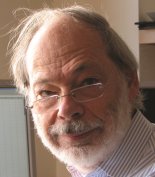While the world begins to grapple with the promise and pitfalls of artificial intelligence, its potential impact on science and medicine is fast becoming the subject of discussion. As the use of AI techniques to analyze data become more widespread, it raises the question of how long science and medicine will even continue to be driven by human intellect.
But before we try to imagine the future of these fields, we need to take an honest look at how science and medicine are currently practiced. That's what Ben Lewin does in this book, covering everything from the "grant game" that doctors and scientists have to play (doing the research they think can get funded rather than the research they think will most benefit mankind), to the "publish or perish" mentality that permeates both teaching hospitals and universities (despite the fact that the papers are a "myth" in that they present the research process as linear even though that's not how science works), to the way politics can stall even the most promising fields of study (like stem cells, which keep facing roadblocks even after demonstrating the potential for building replacement organs).
Selected Podcast
EP 1,166B - How Science Works

Featured Speaker:
Benjamin Lewin
Benjamin Lewin obtained his undergraduate and graduate degrees from the University of Cambridge, England. He became the first Editor of Nature New Biology in 1971, and then worked at the National Cancer Institute from 1972 to 1973. He founded Cell journal in Cambridge, Massachusetts in 1974 and remained Editor of Cell until 1999. Cell became the top-ranked journal in the life sciences. Dr. Lewin is also the author of the best-selling Genes textbook and a series of books on wine. He divides his time between New York City and London.